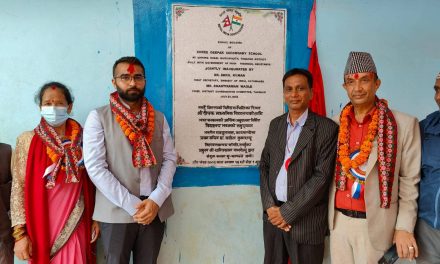– Top Lal Panthi
Now the world is becoming single village due to globalization process, economies have been integrating as a single global village, particularly in the areas of trade, finance, investment, technology transfer and cross cultural development. Countries are providing insight into the drivers of their productivity and prosperity. Increasing global competition is changing the environment facing most companies today. Competitive pressures arising from differences in quality, pricing and product portfolios were driving these losses in Nepalese products, at the same time trade barriers are falling and transaction costs are declining, new global competitors are entering previously more isolated domestic markets. In response to this intensified competitive pressure, local companies are pushed to enhance their products by innovating and adopting process and product improvements.
In this scenario, Nepalese business firms must identify the soaring demand of third countries, whose purchasing power and the rate of readiness to accept the Nepalese products are very high. Those products can be developed with below cost using local resources as compared to other states in Nepal. Successfully executed, this strategy generates a flow of money from abroad that the country can then use to strengthen its domestic economy and raise living standards of Nepal. Many developing countries like Nepal are applying this strategy which supports to develop rapidly. The increased openness, the export trade of Nepal can flourish to the world through exporting. Exporting is the act of producing goods or services in one country and selling or trading them to another country.
Nepal exports to India account for about two-thirds of total exports, with the export basket concentrating on just a few commodities such as zinc sheet, textiles, polyester yarn, jute products and cardamom. Though the ratio of exports to India has also been taking a declining trend, Because of insufficient policy, Nepal is suffering on agricultural trade with the India. In contrast to formal agricultural trade, informal imports from India dominate the trade. Informal trading between Nepal and India is estimated to be much higher than that of formal trade. Also Indian business organizations and farmers are highly appreciated by providing different kinds of subsidies where as Nepalese business organizations and farmers are not getting sufficient incentives from the government.
Nepal can maximize in exports ratio through further dialogue of mutual understanding or Nepal can make ascend to the exports making bilateral or multilateral agreements within the edge of SAARC and other countries. It also can be maximized through minimizing the barriers created by the existing state of infrastructure, technology and bottlenecks. The items recommended for export by traders from different border point cities are mostly agricultural products such as cardamom, ginger, broom sticks tea, fruits, lentils, betel-nuts etc. Some products recommended for export come from forest sources such as medicinal herbs, resin, Kattha etc. Some commodities recommended for export are byproducts of food and food-grain processing industries such as lentil husks, mustard oil cakes, rice bran etc. it is identified products of agricultural and domestic origin as the reason behind their high export potential.
Nepal needs economic growth, it can raise living standards with higher wages for Nepalese inhabitant, higher wages ensure to the consumption of better quality in large scale. As a result production increases automatically, the area of production moves around the world in search of cheaper labor. Political and business leadership of the country will be wise enough to use the money, so it will make less dependent on import. Living and giving standards of Nepal will rise without cracking the economy.
However, the benefits from exporting are not realized overnight in Nepal, firms which have been exporting for few years are substantially more likely to be in profit than newer exporters. Learning from the experience of others country, sector and business is unique and has its own set of challenges; however evidence shows that there is a common set of barriers and methods for exporting. By exposing entrepreneurs to new ideas and new competition, doing business abroad can also create a number of benefits to companies which lead indirectly to growth.
These benefits include the creation of new products or services and the creation of more efficient practices and processes. The evidence that venturing overseas can help a company to innovate, improve efficiencies and improve the credibility of their brand is an important finding. In the modern world of international trade, Nepal can produce more goods in undersized price with better worth; one of the great strengths of the Nepali economy is our ability to produce better and customized item for consumption.
(Writer is Lecturer of Business Environment in Nepal, St. Xavier’s College Maitighar, Kathmandu)





